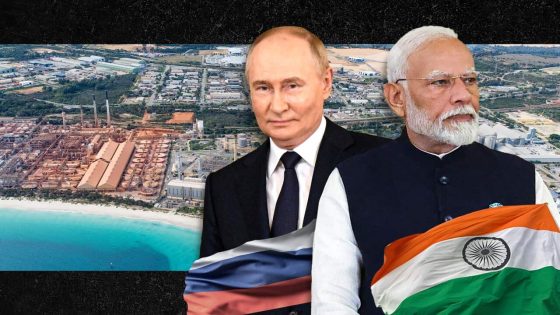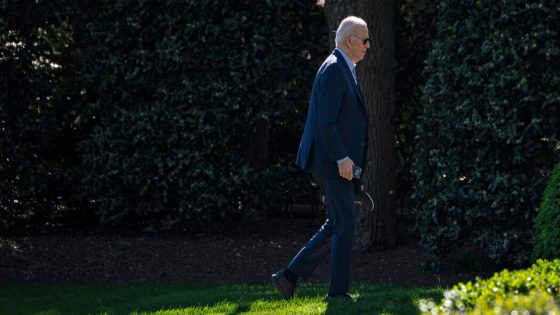Since the full-scale invasion of Ukraine in February 2022, a wide number of countries have imposed sanctions on Russia.
As of July 2024, there are currently in total imposed by the US, the EU, Australia and other countries on Russian entities, individuals and products, including oil.
Some countries, including Australia, are part of a so-called ‘price cap coalition’ that aims to keep the price of Russian oil at a certain level on the international market, while allowing for countries that haven’t imposed sanctions to continue buying the Russian products.
These measures are intended to prevent Russia from gaining major profits from its key exports, and therefore make it more difficult to finance the invasion.
However, , there remains a loophole that allows sanctioning countries to import products made from Russian crude oil refined in third countries.
CREA’s analysis of ship and cargo tracking data showed that in 2023 alone, price cap coalition countries imported 8.5 billion euros (approximately $13.6 billion) worth of products made from Russian crude.
As per CREA’s report, this equates to a 44 per cent increase in imports of oil products by volume by sanctioning EU/G7 countries.
“The oil sanctions on Russia enforced by EU/G7 countries mean that they can’t import crude oil or oil products from Russia,” Vaibhav Raghunandan, EU Russian Analyst and Research Writer at CREA, told SBS Russian.
“Unfortunately, there exists a built-in loophole, a legal loophole, which allows them to import refined oil products from countries that are not sanctioning Russia, countries like China, India and Türkiye.”
Australia importing Russian oil products
CREA collates its data from a variety of sources, though stresses it is not exhaustive.
“We use a ship tracking and cargo tracking data company called Kpler,” Raghunandan said.
“We also use Eurostat, UN Comtrade, and we aggregate different sets of customs data to put together … the accurate figures of what we see coming in and going out of Russia.
“Of course, there are different modes of transport which you have to account for, and specifically in the case of oil, there’s pipeline, railroad, as well as just road transport.”
CREA shared raw data on Australian imports of oil products refined in third countries from Russian crude in 2023 and 2024 with SBS Russian.
According to the data, in the first six months of 2024, Australia imported more than 1.4 million tonnes of refined oil products from at least three refineries that use Russian crude.
Two refineries, Jamnagar and New Mangalore, are in India, and one, Qingdao Huangdao, is in China.
“The Jamnagar refinery, 26 per cent of its runs are on Russian crude. The New Mangalore refinery, 41 per cent of its runs are on Russian crude, and 7 per cent of the Qingdao Huangdao refinery’s runs are on Russian crude,” Raghunandan said.
In India, Jamnagar refinery is owned by the multinational company Reliance Industries. In May 2024, that Reliance Industries signed a deal with Russia’s Rosneft to buy at least 3 million barrels of oil a month and pay for it in roubles.
Rosneft is controlled by the Russian government. The company and its management are under sanctions in Australia.
According to the Centre for Research on Energy and Clean Air, in the first six months of 2024, Australia imported refined oil products from three refineries whose runs were 26 per cent, 41 per cent and 7 per cent Russian crude.
After Russia’s full-scale invasion of Ukraine, the Australian government introduced and entities, and banned the export and import of a number of goods to and from Russia, including oil.
Dr Anton Moiseienko, senior lecturer in law at the Australian National University, suggested this practice might challenge Australia’s sanctions regime.
“If it were possible for companies to buy refined Russian oil simply because it passes through a third-party jurisdiction and is refined there, then that would undermine the robustness of the Australian sanctions regime,” he told SBS Russian.
Ultimately, we need to recall that the raison d’etre of those rules is to make it more difficult for Russia to make money through selling oil, not to cause them to outsource the refining of that oil to another country.
Dr Anton Moiseienko, senior lecturer in law at the Australian National University
A spokesperson for the Department of Foreign Affairs and Trade (DFAT) said Australia’s sanctions and trade measures “have been carefully calibrated to deny Russia access to Australia’s markets and ensure Australia does not inadvertently fund Russia’s war machine”.
“The Department of Foreign Affairs is currently considering issues relating to imported oil and grease products transformed from Russian crude oil.”
‘Glaring loophole’
After being hit with sanctions, Russia shifted its focus towards Asian markets, with India and China becoming key importers of Russian fossil fuels.
In July 2024, India’s Prime Minister Narendra Modi visited Vladimir Putin in Moscow for the first time since Russia’s full-scale invasion of Ukraine.
During the two-day visit, the leaders discussed the development of strategic areas of economic cooperation. A joint statement said the two countries will focus on “cooperation in key energy sectors, including nuclear energy, oil refining and petrochemicals”.
According to data provided by CREA, in April 2023, Australia imported oil products from Vadinar refinery which amounted to 20,056 tonnes of gas oil.
The refinery is owned by Nayara Energy, and its major shareholder is Rosneft.
Raghunandan explained that Australia was not the only country importing oil products from a sanctioned entity.
“If we expand and go beyond Australia, then you see that Vadinar actually exports a lot of products to countries like the US, the UK, the Netherlands, Italy.
There are a lot of EU/G7 countries still importing from a refinery that is essentially owned by a company that’s sanctioned.
Vaibhav Raghunandan, EU Russian Analyst and Research Writer at CREA
“This is a huge glaring loophole in the sanctions itself, because it allows these revenues to flow directly back to Russia,” he said.
SBS enquired with DFAT as to whether the Australian government intervened to prevent the import of oil products from Vadinar refinery and whether the government had issued any fines or penalties in relation to this import.
In a statement, a DFAT spokesperson said the department does not comment on specific or potential compliance matters.
According to CREA’s data sets, Kwinana port in Western Australia has been receiving Australian shipments of oil products refined in India from Russian crude. Credit: Nearmap/Getty Images
Need to ‘knock on doors’ of relevant industries
Moiseienko suggested Australia’s use of sanctions could be strengthened through better communication between the regulator and industry players.
“The problem is a practical one. If you’re an Australian company and you’re buying something from, let’s say Singapore or India or China, how do you know whether or not that originally comes from Russia?” he asked.
There’s an important role for the Australian Sanctions Office to play in really knocking on the doors of relevant industries and saying — do you know what Russian sanctions evasion looks like?
Dr Anton Moiseienko, senior lecturer in law at the Australian National University
“Here are the countries that they tend to use in order to evade sanctions. Here are the sorts of businesses that are often involved in sanctions evasion. So if you see any of that, don’t just jump at that business opportunity. Come to us. Talk to us and ensure that you’re sanctions compliant.”
According to the DFAT sanctions website, industry players are responsible for conducting due diligence to avoid directly or indirectly contravening sanctions law.
The existence and details of communications between the Sanctions Office and industry stakeholders are commercial in confidence.
Moiseienko added there are further ramifications for Australia’s sanctions regime in general.
“We need to remember that Australian sanctions are largely now focused on Russia, but not exclusively. Australia uses sanctions to target all sorts of wrongdoing — North Korean cyber criminals, Iranian human rights abusers.
“If sanctions can’t be enforced in relation to Russia, then what are we expecting in relation to all those other international threats that Australia is using sanctions against?”
Reliance Industries, New Mangalore refinery and Qingdao Huangdao refinery did not respond to SBS’s requests for comment. Nayara Energy requested a phone call, but could not be reached.



